
A clown is a person who performs comedy and arts in a state of open-mindedness using physical comedy, typically while wearing distinct makeup or costuming and reversing folkway-norms. Clowns have a varied tradition with significant variations in costume and performance. The most recognisable clowns are those that commonly perform in the circus, characterized by colorful wigs, red noses, and oversized shoes. However, clowns have also played roles in theater and folklore, like the court jesters of the Middle Ages and the jesters and ritual clowns of various indigenous cultures. Their performances can elicit a range of emotions, from humor and laughter to fear and discomfort, reflecting complex societal and psychological dimensions. Through the centuries, clowns have continued to play significant roles in society, evolving alongside changing cultural norms and artistic expressions.

Seven Brides for Seven Brothers is a 1954 American musical film, directed by Stanley Donen, with music by Gene de Paul, lyrics by Johnny Mercer, and choreography by Michael Kidd. The screenplay, by Albert Hackett, Frances Goodrich, and Dorothy Kingsley, is based on the short story "The Sobbin' Women", by Stephen Vincent Benét, which was based in turn on the ancient Roman legend of the Rape of the Sabine Women. Seven Brides for Seven Brothers, which is set in Oregon in 1850, is particularly known for Kidd's unusual choreography, which makes dance numbers out of such mundane frontier pursuits as chopping wood and raising a barn. Film critic Stephanie Zacharek has called the barn-raising sequence in Seven Brides "one of the most rousing dance numbers ever put on screen." The film was photographed in Ansco Color in the CinemaScope format.

Emmett Leo Kelly was an American circus performer, who created the clown character "Weary Willie", based on the hobos of the Great Depression in the 1930s.
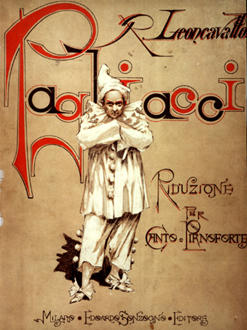
Pagliacci is an Italian opera in a prologue and two acts, with music and libretto by Ruggero Leoncavallo. The opera tells the tale of Canio, actor and leader of a commedia dell'arte theatrical company, who murders his wife Nedda and her lover Silvio on stage during a performance. Pagliacci premiered at the Teatro Dal Verme in Milan on 21 May 1892, conducted by Arturo Toscanini, with Adelina Stehle as Nedda, Fiorello Giraud as Canio, Victor Maurel as Tonio, and Mario Ancona as Silvio. Soon after its Italian premiere, the opera played in London and in New York. Pagliacci is the composer's only opera that is still widely performed.
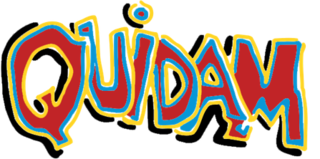
Quidam was the ninth stage show produced by Cirque du Soleil. It premiered in April 1996 and has been watched by millions of spectators around the world. Quidam originated as a big-top show in Montreal and was converted into an arena format beginning with its 2010 tour in North America. It then changed back to the Big Top for a 3-month run in Seoul, South Korea before returning to an arena show for its tour to Oceania. The show performed for the final time in Christchurch, New Zealand on February 26, 2016.

Circus clowns are a sub-genre of clowns. They typically perform at circuses and are meant to amuse and entertain guests.
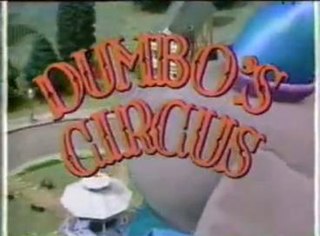
Dumbo's Circus is a live action/puppet television series that aired on The Disney Channel beginning on May 6, 1985 to May 25, 1986. and featured the character of Dumbo from the original film. Reruns continued to air until February 28, 1997.
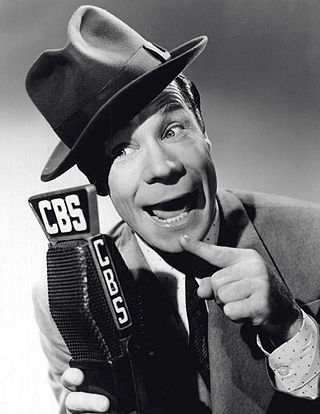
Joseph Evans Brown was an American actor and comedian, remembered for his friendly screen persona, comic timing, and enormous elastic-mouth smile. He was one of the most popular American comedians in the 1930s and 1940s, with films like A Midsummer Night's Dream (1935), Earthworm Tractors (1936), and Alibi Ike (1935). In his later career Brown starred in Some Like It Hot (1959), as Osgood Fielding III, in which he utters the film's famous punchline "Well, nobody's perfect."
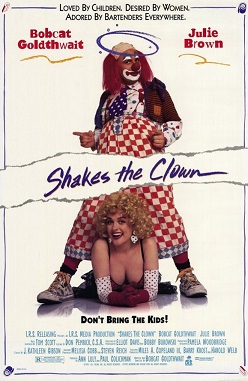
Shakes the Clown is a 1991 American black comedy film directed and written by Bobcat Goldthwait, who performs the title role. It also features Julie Brown, Blake Clark, Paul Dooley, Kathy Griffin, Florence Henderson, Tom Kenny, Adam Sandler, Scott Herriott, LaWanda Page, Jack Gallagher, and a cameo by Robin Williams as Mime Jerry using the pseudonym "Marty Fromage".

He Who Gets Slapped is a 1924 American silent psychological thriller film starring Lon Chaney, Norma Shearer, and John Gilbert, and directed by Victor Sjöström. The film was written by Victor Seastrom and Carey Wilson, based on the Russian play He Who Gets Slapped by playwright Leonid Andreyev, which was completed by Andreyev in August 1915, two months before its world premiere at the Moscow Art Theatre on October 27, 1915. A critically successful Broadway production, using an English language translation of the original Russian by Gregory Zilboorg, was staged in 1922, premiering at the Garrick Theatre on January 9, 1922, with Richard Bennett (actor) playing the "HE" role on stage. The Russian original was made into a Russian movie in 1916.

JoJo's Circus is a stop-motion animated television series created by Jim Jinkins, David Campbell, Lisa Jinkins, and Eric Weiner and produced by the Canada-based Cuppa Coffee Studios and Cartoon Pizza. The series was written by Douglas Wood, who previously worked for Tiny Toon Adventures and Animaniacs as a creative executive. The series' songs were composed by Jeffrey Zahn and Jim Latham, with lyrics done by Judy Rothman. The theme song was performed by BECKY.

Nothing Lasts Forever is a 1979 action thriller novel by American author Roderick Thorp, a sequel to his 1966 novel The Detective. The novel is mostly known through its 1988 film adaptation Die Hard, starring Bruce Willis. In 2012, the book was brought back into print and released as an ebook for the 24th anniversary of the film.

Laugh, Clown, Laugh is a 1928 American silent drama film starring Lon Chaney and Loretta Young. The movie was directed by Herbert Brenon and produced by Irving G. Thalberg for MGM Pictures. A sound version of this film was released in the second half of 1928 and featured a synchronized musical score with sound effects. The film was written by Elizabeth Meehan, based on the 1923 Broadway stage production Laugh, Clown, Laugh by David Belasco and Tom Cushing, which in turn was based on a 1919 play Ridi, Pagliaccio by Fausto Maria Martini.

The Indian Runner is a 1991 crime drama film written and directed by Sean Penn in his directorial debut. Based on Bruce Springsteen's song "Highway Patrolman", the film depicts the relationship between two brothers who find themselves on opposite sides of the law. It stars David Morse and Viggo Mortensen as the brothers, alongside Valeria Golino, Patricia Arquette, Jordan Rhodes, Dennis Hopper, Charles Bronson, and Sandy Dennis in her final film role.
"Chuckles Bites the Dust" is an episode of the television situation comedy The Mary Tyler Moore Show which first aired on October 25, 1975. The episode's plot centers on the WJM-TV staff's reaction to the absurd death of Chuckles the Clown, an often-mentioned but seldom-seen character who starred in an eponymously titled children's show at the station. Most of the WJM-TV staff cannot help making jokes about the strange death of a strange person except for Mary, who repeatedly scolds her co-workers for disrespecting the deceased. However, during Chuckles' funeral service, Mary begins to giggle uncontrollably, much to her embarrassment. The celebrant assures her that laughing is the proper response to the life of a clown.

Patricia Ellis was an American film actress of the 1930s.

Broadway to Hollywood is a 1933 American pre-Code musical film directed by Willard Mack, produced by Harry Rapf, cinematography by Norbert Brodine and released by Metro-Goldwyn-Mayer. The film features many of MGM's stars of the time, including Frank Morgan, Alice Brady, May Robson, Madge Evans, Jimmy Durante, Mickey Rooney, and Jackie Cooper. Brothers Moe Howard and Curly Howard of The Three Stooges appear—without Ted Healy and without Larry Fine—almost unrecognizably, as Otto and Fritz, two clowns in makeup. It was the first film to feature Nelson Eddy.

The Little Clown is a 1921 American silent comedy film directed by Thomas N. Heffron and starring Mary Miles Minter, adapted by Eugene B. Lewis from a comedy play by Avery Hopwood. It is one of approximately a dozen of Minter's films which still survive today. A copy of the film was found in the Dawson Film Find in 1978 - although other copies survived in various holdings - and a few brief frames from this copy can be seen in 2016 documentary Dawson City: Frozen Time.

Mehandi Circus is a 2019 Indian Tamil-language action romantic drama film written by Raju Murugan and directed by Saravana Rajendran who is also his elder brother on his directorial debut. The film casts newcomer Madhampatty Rangaraj in main lead role and Shweta Tripathi on her Tamil film debut in female lead role while RJ Vigneshkanth and Vela Ramamoorthy play supportive roles. The film's soundtrack is composed by Sean Roldan while Selvakumar S. K. and Philomin Raj of Maanagaram fame are selected as cinematographer and film editor respectively. The film is produced K. E. Gnanavel Raja under his production studio banner Studio Green. This film had positive reviews from critics and general audience.
He Who Gets Slapped is a 1956 opera in 3 Acts by composer Robert Ward with an English language libretto by Bernard Stambler which is based on Leonid Andreyev's play of the same name. The first of Ward's nine operas, the opera is written in a lyrical style reminiscent of verismo. The work is infrequently performed; with its most notable staging being at Lincoln Center by the New York City Opera in 1959. Stambler's adaptation of the play made some notable changes in plot and characterization, condensing the final two acts of the four act play into one act. The play's central character, "He", was renamed Pantaloon in reference to the character from Italian commedia dell'arte. Additionally, the play's tragic murder and suicides at the end are removed for a somewhat happier conclusion where Pantaloon is rejected by Consuelo instead of Pantaloon murdering her.



















